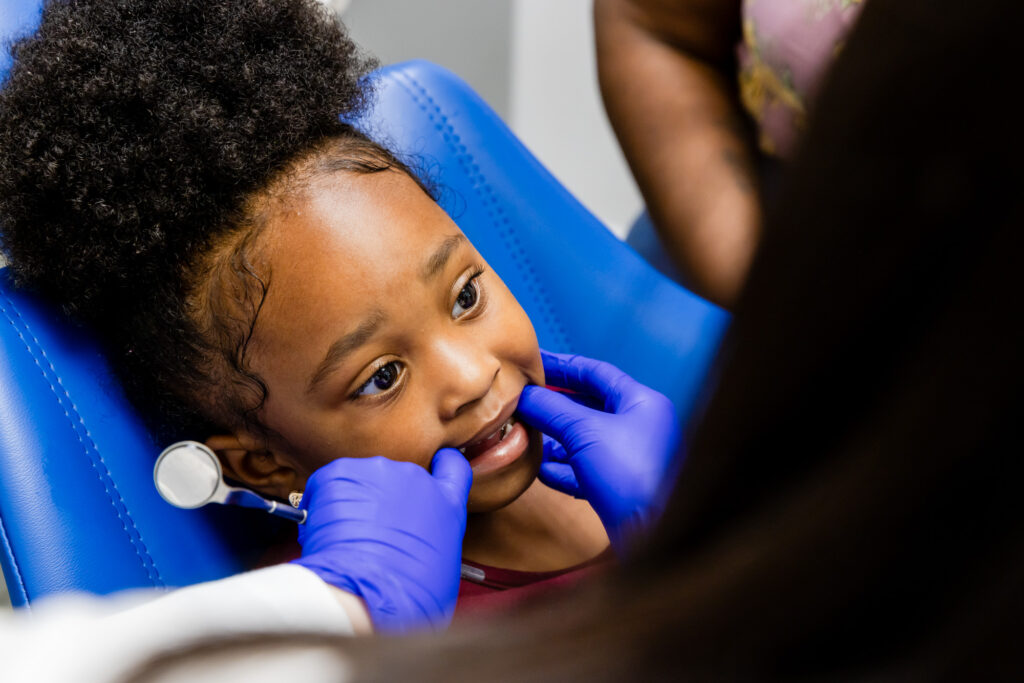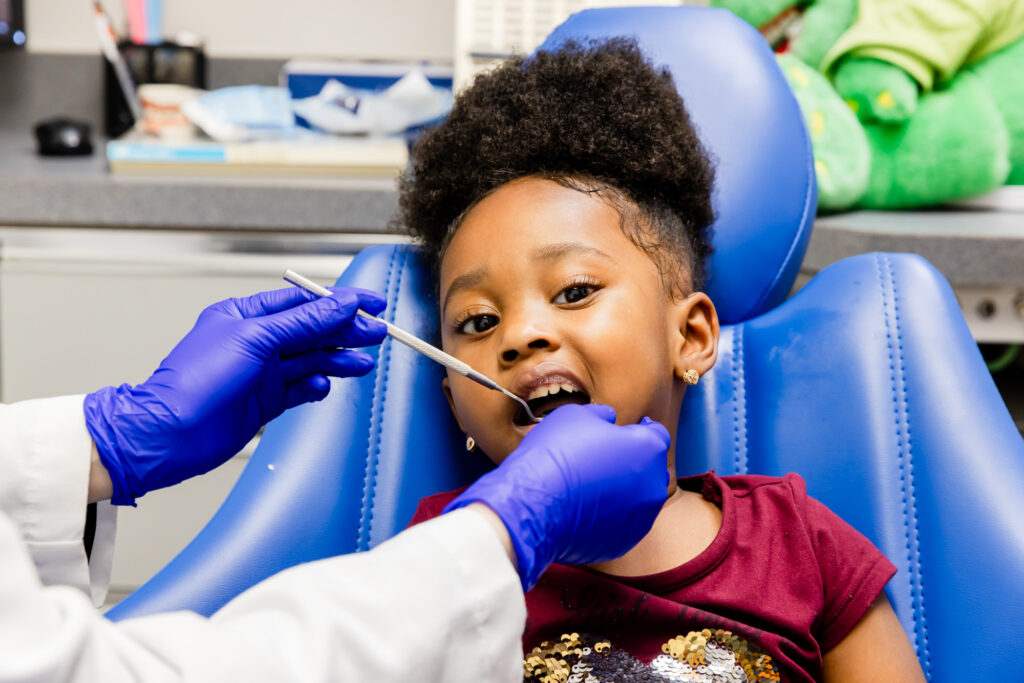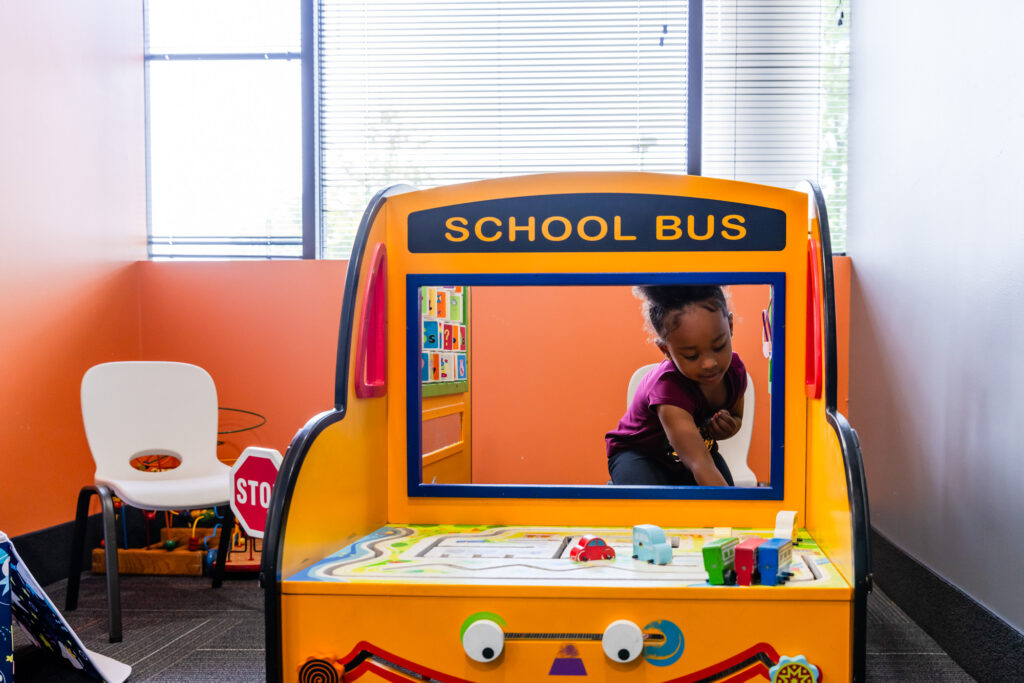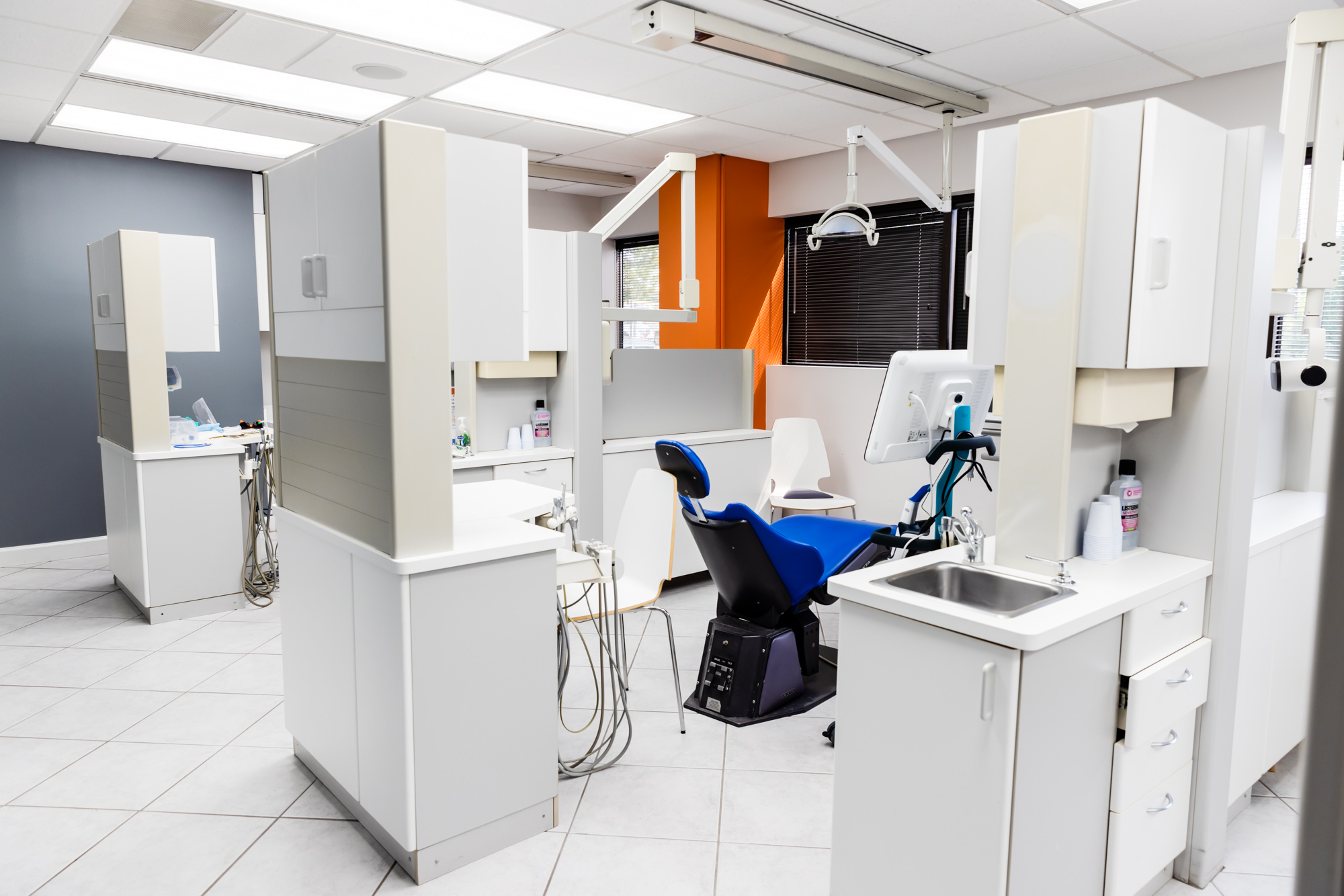If you suspect your child has suffered a severe impact to the head, you should take them to an emergency room for immediate treatment, as dental care can wait until your child’s safety is assured.
Emergency Pediatric Dentistry Overview
A dental emergency involves an injury or situation with extreme discomfort or pain that may compromise the integrity of the tooth, gums, or overall mouth without prompt treatment. This can be an acute injury, such as a sports injury that knocks out or chips a tooth, or a chronic condition that causes sudden problems, such as a tooth worn down over time that falls out.
What We Do
Some examples of a dental emergency include:
Severe toothache
Bleeding that won't stop
Bitten lip, cheek, or tongue
A baby tooth being chipped, fractured, or knocked out, particularly prematurely
A permanent tooth being chipped, fractured, or knocked out
Why You Should Seek Help ASAP
Seeking immediate emergency care from a dentist for kids in Gainesville is crucial when your child experiences a dental emergency. Timely treatment alleviates pain and prevents long-term damage to your child’s developing teeth and gums. An experienced pediatric dentist can provide the appropriate care in a kid-friendly environment, ensuring your child feels safe and comfortable during what can be a stressful experience. Early intervention in dental emergencies can also play a significant role in maintaining overall oral health, which is essential for your child’s eating, speaking, and self-confidence. Remember, acting quickly in a dental emergency can significantly impact your child’s dental health, so it’s always best to be prepared and seek professional help immediately.

What to Expect
The primary goal here is to quickly address pain and prevent further harm. As soon as you call us for an appointment, we’ll talk you through ways to manage the situation while you make your way to our office to see our emergency pediatric dentist in Gainesville. Once you arrive, we’ll see your child and thoroughly evaluate their condition, identifying the nature and severity of the issue. This may require X-rays if it’s difficult to gauge the extent of the damage. We then perform whatever treatment is necessary to support their recovery and long-term dental health.
Throughout the appointment, our kids’ dentists will use techniques tailored to children, focusing on keeping them calm and comfortable. This might involve using child-friendly language, distraction techniques, or, if necessary, sedation to ease anxiety and facilitate treatment.
After immediate concerns are addressed, the dentist will provide guidance on aftercare and any follow-up treatments needed. This will include advice on pain management, how to care for the affected area at home, and when to return to Hero Pediatric Dentistryfor a check-up or additional treatment.

Trusted Specialists in Dental Emergencies
Expert Team
Our team of dentists and dental hygienists are equipped to handle and treat dental emergencies.
Swift Treatment
We act fast when you give us a call to provide effective treatment.
Compassionate Care
When your child is in distress, we give them the comforting and compassionate care they need to feel safe in our hands.
Frequently Asked Questions About Emergency Dentistry
If a baby tooth was already quite loose and falls out from a mild bump, it’s not cause for concern. However, if there was a more serious impact and a baby tooth is knocked out prematurely, their permanent teeth may grow in incorrectly and result in misaligned or crowded teeth, which is why it’s still important to come in for an evaluation.
Yes. If you act fast and keep the knocked out tooth, bring it with you to our emergency pediatric dentist in Gainesville within 30 minutes of the injury. Don’t touch the root while handling the tooth, and rinse it with milk or water. Then drop it into a glass of milk and take it to the office. The most important thing is to keep the tooth moist so it can be reinserted. Our dentist can perform immediate treatments to try to reattach the tooth.
You wouldn’t believe some of the weird and wonderful things our emergency pediatric dentists in Gainesville have seen. All thanks to the adventurous and curious nature of children! Nonetheless, here are scenarios we encounter regularly at Hero Pediatric Dentistry:
The most common pediatric dental emergencies that dentists encounter include:
- Toothaches: These are often caused by tooth decay, trauma, infection, or emerging teeth. They can result in significant discomfort for children and are a frequent reason for urgent dental visits.
- Chipped or Broken Teeth: Active children can easily chip or break their teeth during play, sports, or from falls. Such injuries can range from minor chips to more severe fractures.
- Knocked-Out (Avulsed) Teeth: Particularly in older children and teenagers, a tooth may be completely knocked out due to a fall or a sports injury. This is a critical emergency where timely treatment can potentially save the tooth.
- Dental Infections and Abscesses: Untreated tooth decay or injury can lead to infections or abscesses, which are pockets of pus around the tooth that can cause severe pain and swelling.
- Lost Fillings or Crowns: Though more common in adults, children with previous dental work can experience dislodged fillings or crowns, often leading to pain and sensitivity.
- Soft Tissue Injuries: Injuries to the lips, gums, or inside of the cheeks, often due to bites, falls, or sports accidents, can cause bleeding and require immediate care.
- Orthodontic Emergencies: Children with braces may face emergencies like broken brackets, snapped wires, or wires poking into the cheek, which can cause discomfort and require prompt attention.
- Prolonged Bleeding After a Baby Tooth Falls Out: While losing baby teeth is a normal part of development, excessive or prolonged bleeding can sometimes occur, needing professional attention.
- Tooth Sensitivity: Sudden or severe sensitivity to hot, cold, or sweet foods and drinks can indicate underlying problems that need urgent care.
We often get calls from frantic, stressed parents asking us what to do in various scenarios. We’ve laid out our best advice below, so bookmark this page to use when you need to “triage” the situation before coming in to see us:
- Toothache: Begin by gently cleaning around the sore tooth meticulously. Using warm salt water to rinse the mouth can help dislodge trapped food or debris. Do not put aspirin or any other painkiller against the gums near the aching tooth, as this could burn the gum tissue. Give your child acetaminophen or ibuprofen for pain if necessary.
- Broken Tooth: Rinse the area with warm water and apply a cold compress to reduce swelling. If you can find any broken tooth fragments, bring them with you to the dentist. Avoid applying topical oral pain medications, as they can burn the tissue.
- Knocked-Out Tooth: If it’s a permanent tooth, find the tooth and hold it by the crown (the part that is usually exposed in the mouth), not the root. If the tooth is dirty, rinse it gently in milk or water. Do not scrub it or remove any attached tissue fragments. Try to reinsert it in its socket, but if that’s not possible, keep the tooth moist by placing it in milk or your child’s saliva. Time is critical in this situation, so head to our office immediately.
- Bitten Lip or Tongue: Clean the area gently with water and use a cold compress to reduce swelling. If the bleeding is excessive or doesn’t stop with pressure after a short time, seek medical attention.
- Objects Caught Between Teeth: Try to gently remove the object with dental floss. Do not use a sharp or pointed instrument.
- Possible Broken Jaw: If you suspect your child has a broken jaw, do not try to manipulate it. Secure the jaw in place with a handkerchief, necktie, or towel tied around the jaw and over the top of the head. Use cold compresses to reduce swelling and seek immediate medical attention at the emergency room.
It’s important to remember that these measures are temporary solutions. Always follow up with a visit to your pediatric dentist as soon as possible for proper diagnosis and treatment. In the meantime, remaining calm and providing reassurance can greatly help in managing your child’s anxiety during a dental emergency.
Unfortunately not every emergency scenario is avoidable, however, there are things you can do to greatly reduce the likelihood of them occurring.
- Regular Dental Check-ups: Schedule regular dental visits for your child every six months. Routine check-ups can identify and address potential issues before they become emergencies.
- Good Oral Hygiene Practices: Teach your child to brush twice a day with fluoride toothpaste and to floss daily. Good oral hygiene is key in preventing tooth decay and gum disease.
- Healthy Diet: Limit sugary and acidic foods and drinks, as these can contribute to tooth decay. Encourage a balanced diet rich in fruits, vegetables, and calcium-rich foods to promote strong teeth and gums.
- Use of Mouthguards: If your child is involved in sports or recreational activities, have them wear a mouthguard to protect their teeth from injury.
- Child-Proof Your Home: For younger children, especially toddlers, make sure your home is child-proofed to prevent falls and injuries. This includes securing heavy furniture, using corner protectors, and ensuring that play areas are safe.
- Avoid Using Teeth as Tools: Teach children not to use their teeth for tasks like opening bottles or packages to prevent chipping or breaking.
- Proper Use of Pacifiers and Sippy Cups: Prolonged use of pacifiers and sippy cups can lead to dental problems. Use them appropriately and wean your child off them at the recommended age.
- Educate on Oral Hygiene: Educate children about the importance of taking care of their teeth and the potential consequences of neglect, in a child-friendly manner.
- Prompt Treatment of Dental Issues: If you notice any signs of dental problems, like loose fillings, minor tooth decay, or gum issues, get them treated promptly to prevent escalation into emergencies.
- Supervise Young Children: Supervise young children during brushing and flossing to ensure they’re doing it correctly and not swallowing toothpaste.
By implementing these practices, you can significantly reduce the risk of dental emergencies and help your child maintain a healthy smile. However, accidents can still happen, so it’s also important to know how to respond in an emergency and have Hero Pediatric Dentistry in Gainesville’s contact information readily available.

Act Now for Recovery
For emergencies, please give us a call as soon as possible for your child’s maximum recovery.












